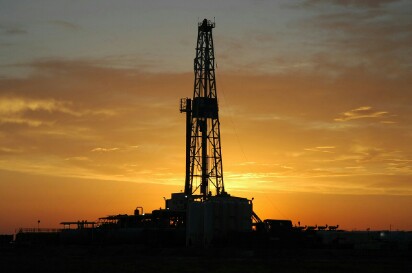
Published May 17, 2011
By Brandolon Barnett
We've covered the Dallas Gas Drilling task force and gas drilling a lot in the past year. We've interviewed commission members (more than once), broke the story on the makeup of the commission, and invited commentaries exploring the background on the gas drilling issues and what they mean, or could mean, for our communities.
Yesterday, all the coverage, both here at Green Source DFW and other publications, came to a head as the Dallas City Council heard a briefing by the Dallas gas drilling commission and opponents to the commission's final recommendation. Before we go on, know that you can see the meeting for yourself and make up your own mind regarding how the meeting went. While we were preparing and finalizing the Green Source newsletter and preparing to watch the meeting through City Hall TV on the city's website, friend of Green Source Marc McCord (of FracDallas) was speaking up before the city council for properly regulated Gas Drilling. He took the time to send along a summary of the meeting, pointing out what he saw as a few erroneous assertions made by Lois Finkleman, who represented the commission before the council.
First, Marc points to Finkleman's instistence that there would be no injection wells in Dallas. In Marc's words, "the injection well on DFW Airport property (that Finkleman implies can be utilized to avoid contamination in Dallas) was closed last year by the airport board because it was causing earthquakes beneath the runways and the board feared runway failures that would close the airport at great economic peril to the entire world, and second, the board had always stipulated that no wastewater from ANY well located off airport property could ever be injected there." Second, he points to what he claims is an error in the depiction of the sound pollution that accompanies drilling.
Marc: "considering only the "loudness" level, which is most relevant to our quality of life if we live, work or play near a source of loud noise, an increase of 10 dB (decibels - the logarithmic scale by which sound level is measured) is approximately equivalent to noise being twice as loud, so a noise level of 70 dB is twice as loud as a noise level of 60 dB." Marc offers some figures to provide perspective on the noise that will come to communities near gas drilling.
Generally, opponents of the drilling task force's final recommendation spoke about the 'true' financial picture vs. the promises of industry (Marc McCord), and the need to protect our parklands (Molly Rooke), the dangers and hypocrisy of many of the task force's rules regarding set-backs (Claudia Meyer), and threats to water supplies (Mary Warren of FracDallas). As Claudia Meyer pointed out, while the task force claimed to be using Ft. Worth, Flower Mound etc. as models, the setbacks in the task force's final recommendation somehow ended up being closer than they are in neighboring cities ordinances.
And this is how Claudia Meyer brings up what has to be a consistent question, "where is the science". It has seemed from the beginning that science - that is the potential effects on human health, environmental health, and quality of life, is too often taking a back seat when considering how to properly regulate gas-drilling in our communities. For one thing, you have to wonder why no scientists were invited to speak empirically on some of the issues facing the council. Why?
While this at times seems to be a consistent feature of modern American democracy (empricism taking a back seat. See - Global Warming), it makes one wonder. The gas drilling issue isn't over and won't go away until the council passes an ordinance based on the commission's final recommendation and lobbying from various interest groups, be they from industry or grass roots organizations like Downwinders at Risk and FracDallas. Going forward, one hopes that there will be an effort by the council to seek out the opinions of scientists to discover the empircal effects on their constituents, and that more folks will make their voices hear. This should be a big issue, but as with many things whether or not it becomes one or just another ordinance that passes unseen and uncommented on by most in de facto darkness is up to us and our community.
Brandolon Barnett is the Editor of Green Source DFW. He has worked as Assistant Producer for THINK at KERA in Dallas, among other positions. With an MA in International Studies, his focus and passion is non-profit advocacy both domestically and abroad. To share comments or story ideas email -brandolon@greensourcedfw.org









